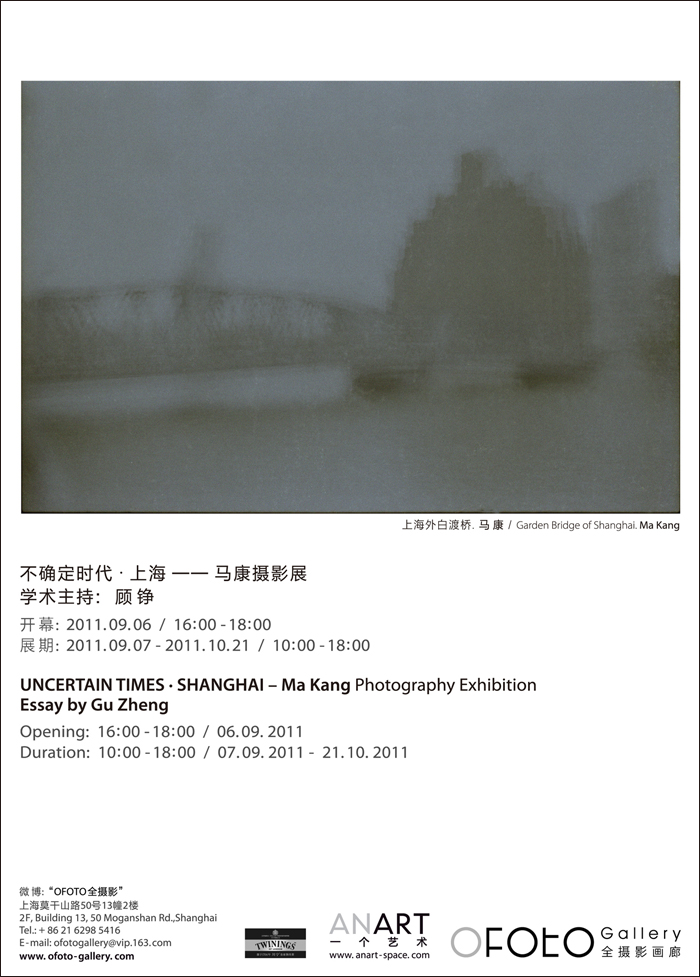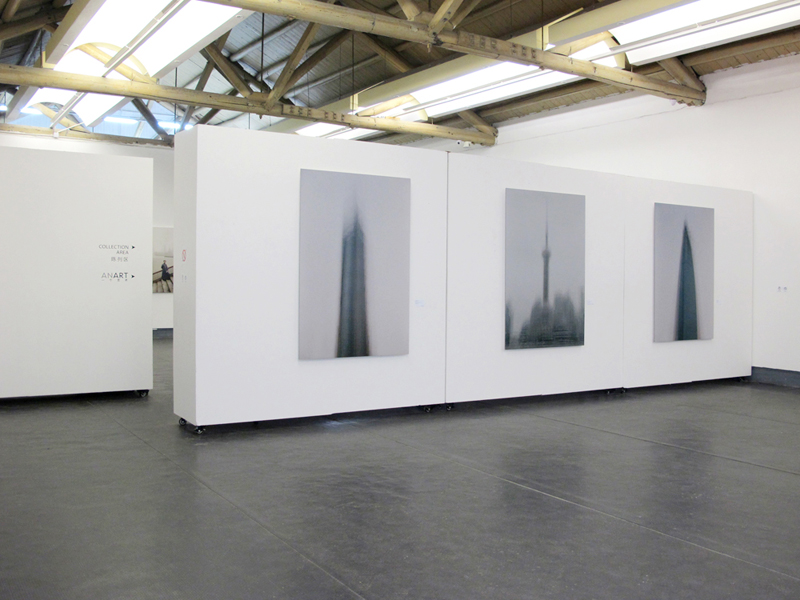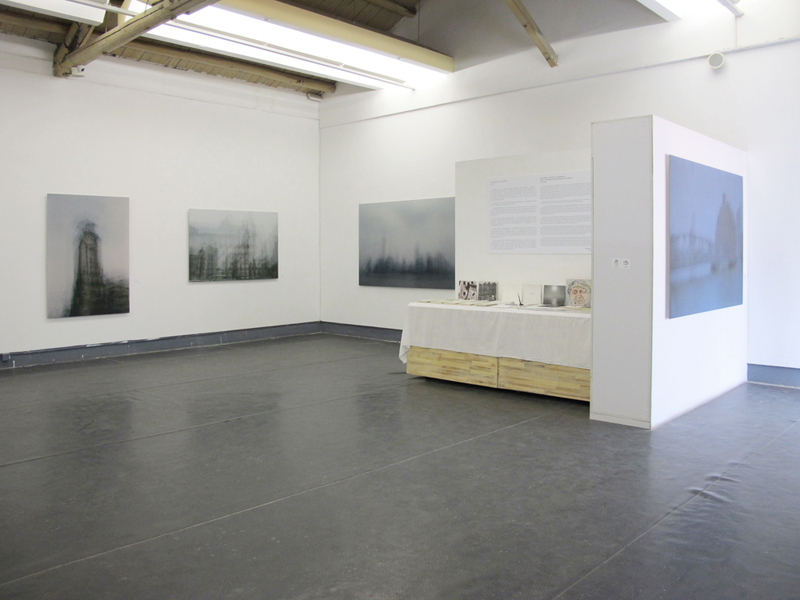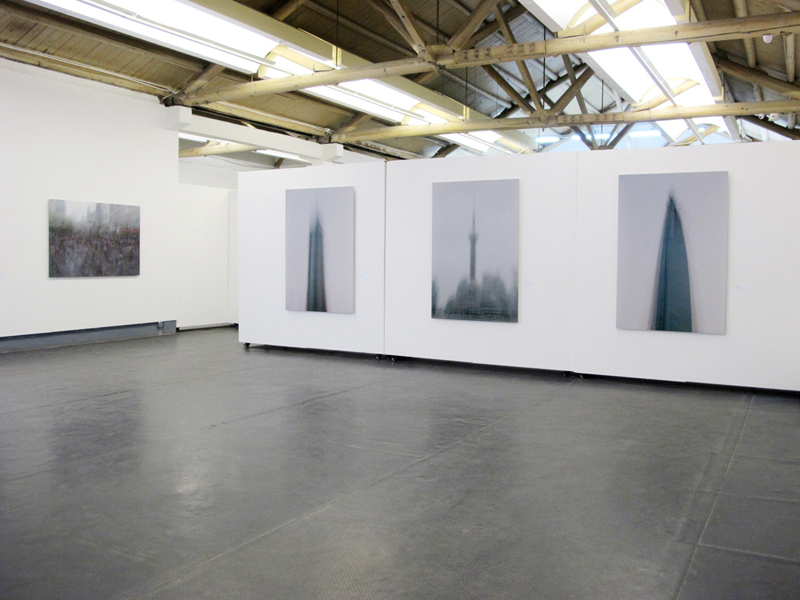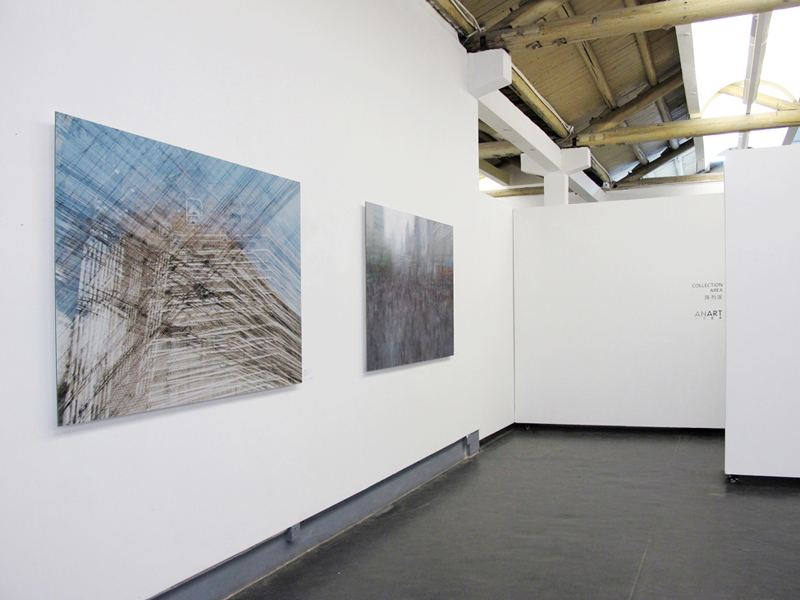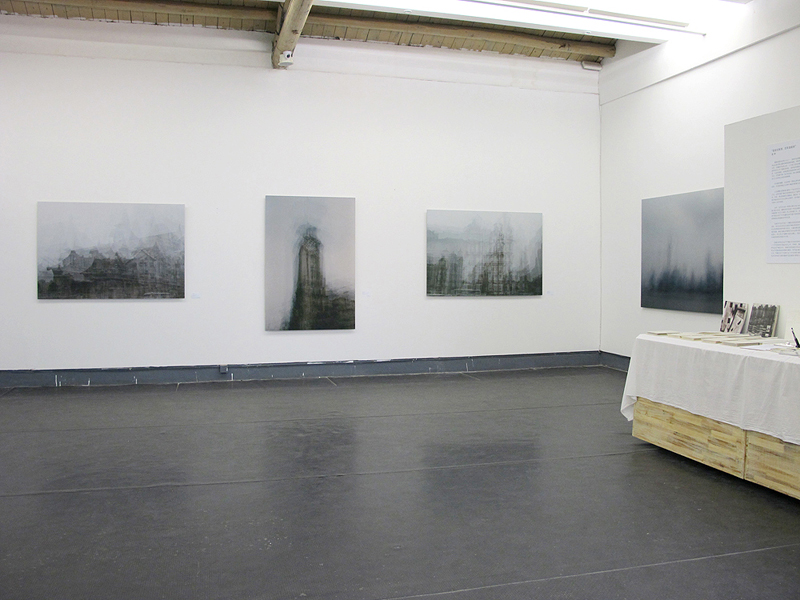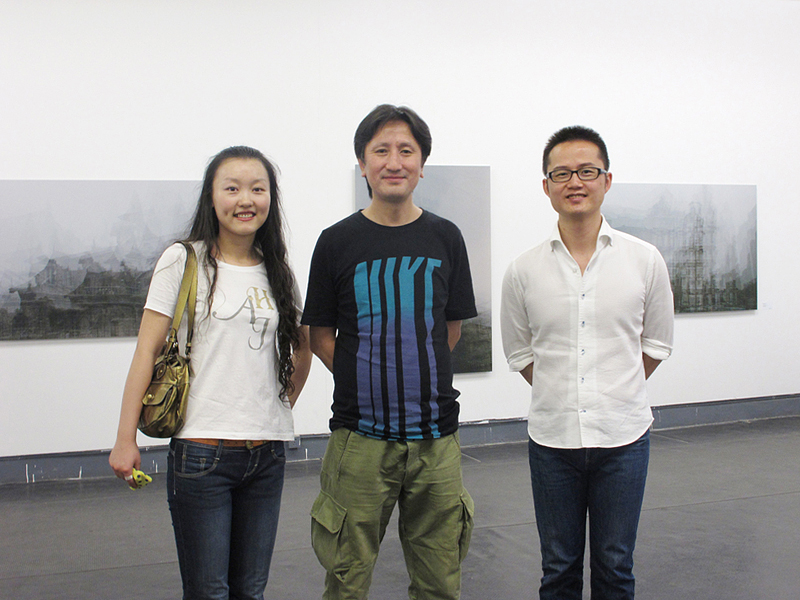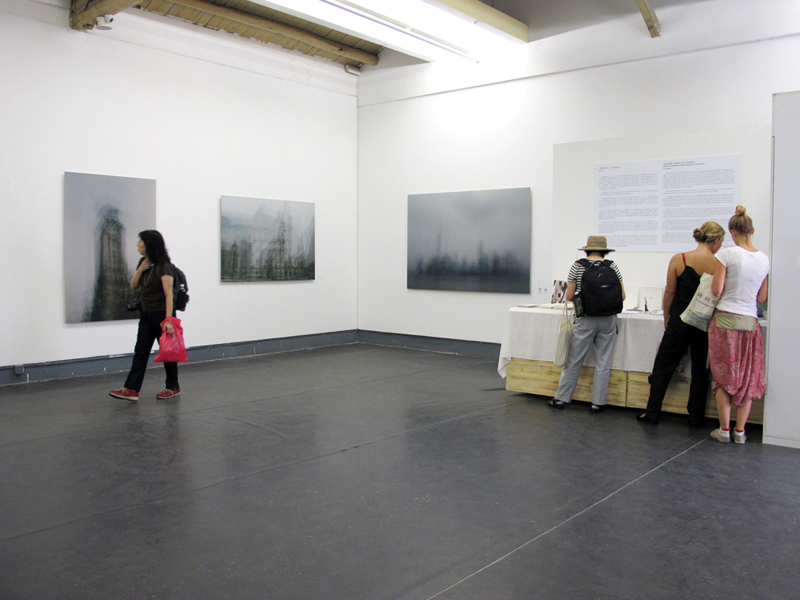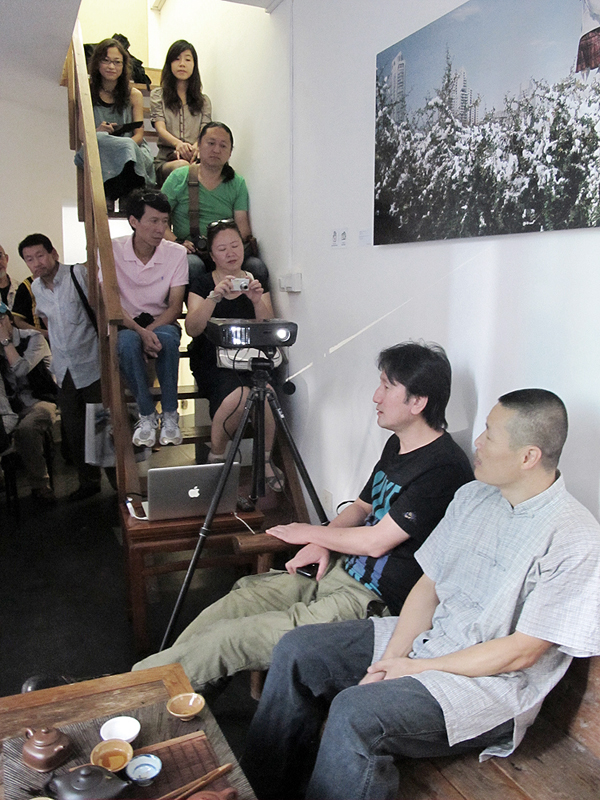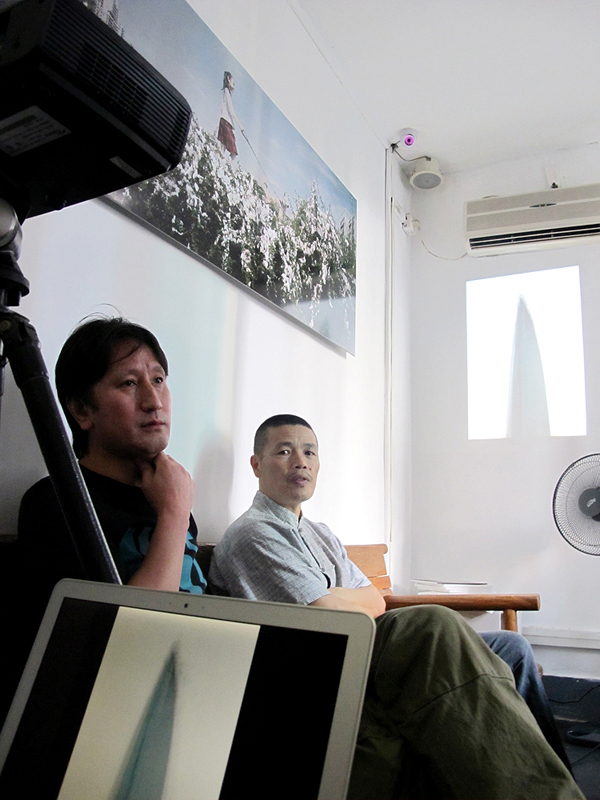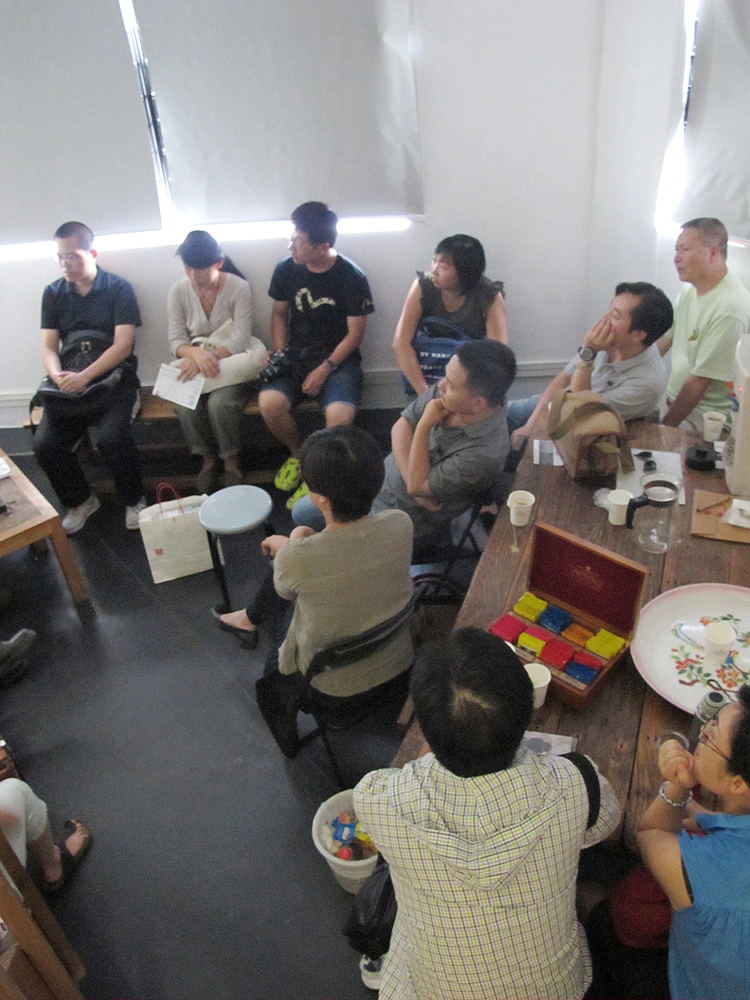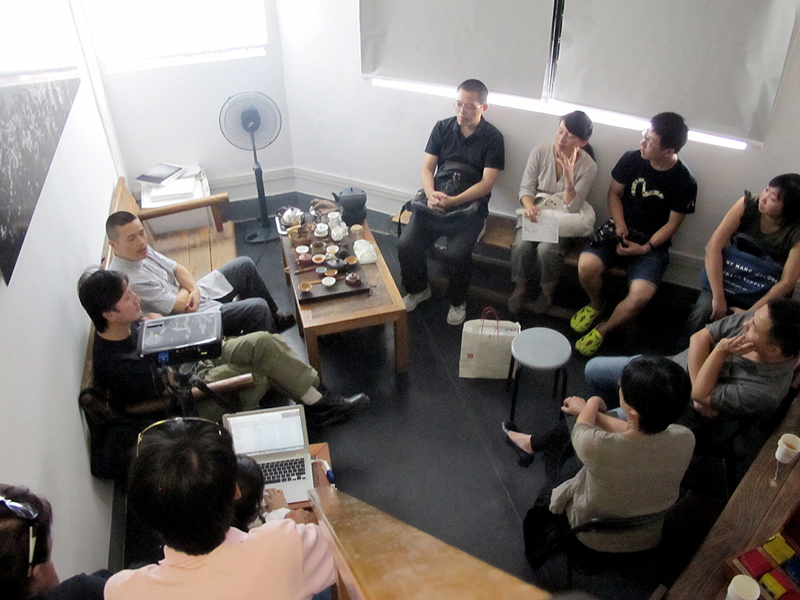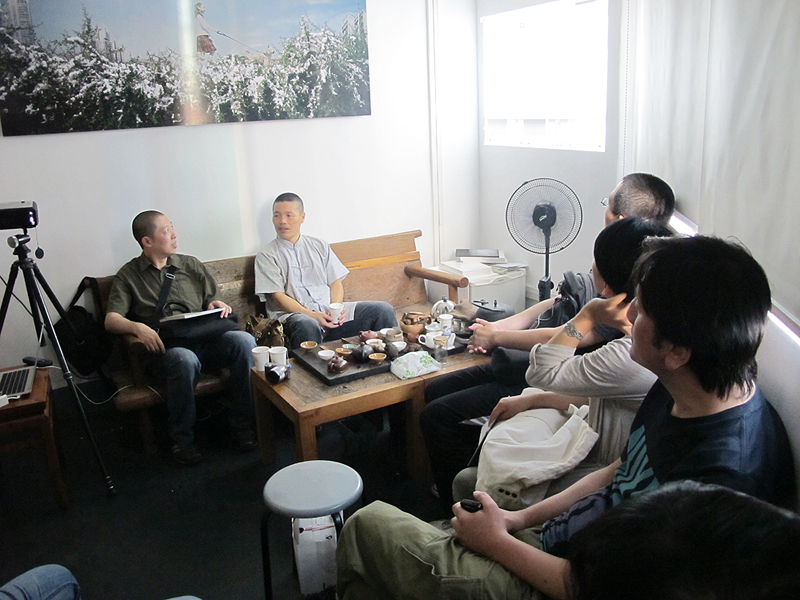Accident Happens in A MomentCCIDENT; Who Can Remain Unchanged in the Ages?
by Gu Zheng
One of the functions of photography shall be how to use automatic imaging techniques of photography to capture and visualize the sharp images, and then present the clues for analyzing the object’s structures. Blurring object of certain shape is obviously not the original intention of inventing photography. After the invention of photography, people tended to either act from the angle of language exploration, or in an opposite way of photography because of the limitations of technology at that time, or utilize and approve the shortcomings of photography, or deliberatively sway the camera to get a blurred image, from which we could find many notable behaviors. Compared with the main stream of pursuing clarity and vividness as truth, this technique of pursuing obscurity rather than resemblance still belongs to accidental practice. Most of the photographers won’t choose the technique as major approach, nor personal style.
Nevertheless, Ma Kang insists on blurred images of the prestigious landmarks as his primary pursuit of photographic expressions and has finally established this personal style of blurred images.
It is a kind of anti-photography approach to use repeatedly overlapped images to construct a double uncertain picture between time and space. This double uncertain picture also makes it difficult to identify the forms. Photography is highly recognized by its superior ability to describe details. However, it is hard to identify the details of the forms which is more and more flurry after been repeatedly overlapped. Comparitively certain shapes and unrecognizable details, all together, reinforce the uncertainty of these historic landmarks and further indicate the artist’s concept about history.
Of course, it is not only difficult to identify the real but also the truth. What Ma Kang reminds us here is that photography may be not only an automatic imaging art but also an image creation, as he presents today, which has a misty shadow of truth but is puzzling. He hereby doubts if photographs can present the real and truth, which of course includes the doubt to photography as ‘recording the real’. He also doubts photography itself through questioning the real and truth. Yet, I prefer this attitude towards photography.
Ma Kang is not just an explorer of photographic language. He uses the photographic language to visualize personal feelings about this uncertain time and meanwhile present the specific shape of the uncertainty of history. Yes, it is an uncertain time. Everything we face can not reach a final judgment and definition. A lot of fake sneaks in the authentic; a lot of false mixes in the true. Because of our own impudicity, real and certain things have lost their reliability. It’s not due to the change of the fact. The fact and truth have not changed. The reason of uncertainty is our nature of fallibility, which includes unreliability caused by the limitation of ways of seeing.
Gathered by these historic uncertain landmarks, one certain impression is that we are now living in an irreversible uncertain situation. Similarly our history remains half false, half true. With the evolution of history and development of reality, all uncertainty in Ma Kang’s photographs will appear more and more obvious and intense and inevitably go on the way to evanesce and break up rather than converge, confirm and consolidate towards certainty. We may confirm that the most certainty in this age is the uncertainty. As the poet Cao Zhi says: Accident happens in a moment; who can remain unchanged in the ages? This may be what Ma Kang’s blurred pictures inspire us.
Translation: Fan Chen
翻 译:范 晨
by Gu Zheng
One of the functions of photography shall be how to use automatic imaging techniques of photography to capture and visualize the sharp images, and then present the clues for analyzing the object’s structures. Blurring object of certain shape is obviously not the original intention of inventing photography. After the invention of photography, people tended to either act from the angle of language exploration, or in an opposite way of photography because of the limitations of technology at that time, or utilize and approve the shortcomings of photography, or deliberatively sway the camera to get a blurred image, from which we could find many notable behaviors. Compared with the main stream of pursuing clarity and vividness as truth, this technique of pursuing obscurity rather than resemblance still belongs to accidental practice. Most of the photographers won’t choose the technique as major approach, nor personal style.
Nevertheless, Ma Kang insists on blurred images of the prestigious landmarks as his primary pursuit of photographic expressions and has finally established this personal style of blurred images.
It is a kind of anti-photography approach to use repeatedly overlapped images to construct a double uncertain picture between time and space. This double uncertain picture also makes it difficult to identify the forms. Photography is highly recognized by its superior ability to describe details. However, it is hard to identify the details of the forms which is more and more flurry after been repeatedly overlapped. Comparitively certain shapes and unrecognizable details, all together, reinforce the uncertainty of these historic landmarks and further indicate the artist’s concept about history.
Of course, it is not only difficult to identify the real but also the truth. What Ma Kang reminds us here is that photography may be not only an automatic imaging art but also an image creation, as he presents today, which has a misty shadow of truth but is puzzling. He hereby doubts if photographs can present the real and truth, which of course includes the doubt to photography as ‘recording the real’. He also doubts photography itself through questioning the real and truth. Yet, I prefer this attitude towards photography.
Ma Kang is not just an explorer of photographic language. He uses the photographic language to visualize personal feelings about this uncertain time and meanwhile present the specific shape of the uncertainty of history. Yes, it is an uncertain time. Everything we face can not reach a final judgment and definition. A lot of fake sneaks in the authentic; a lot of false mixes in the true. Because of our own impudicity, real and certain things have lost their reliability. It’s not due to the change of the fact. The fact and truth have not changed. The reason of uncertainty is our nature of fallibility, which includes unreliability caused by the limitation of ways of seeing.
Gathered by these historic uncertain landmarks, one certain impression is that we are now living in an irreversible uncertain situation. Similarly our history remains half false, half true. With the evolution of history and development of reality, all uncertainty in Ma Kang’s photographs will appear more and more obvious and intense and inevitably go on the way to evanesce and break up rather than converge, confirm and consolidate towards certainty. We may confirm that the most certainty in this age is the uncertainty. As the poet Cao Zhi says: Accident happens in a moment; who can remain unchanged in the ages? This may be what Ma Kang’s blurred pictures inspire us.
Translation: Fan Chen
翻 译:范 晨
